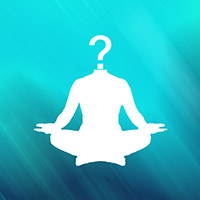Today I published a new video talking about my current theory regarding consciousness and how it relates to enlightenment. The theory arose over the course of a few meditation sessions and really struck me as an interesting way to think about things. Of course I could be wildly misinformed, not being a neuroscientist and all, but I love allowing my mind to just think in different directions and see what it tells me.
This theory talks primarily about “configuration states”, individual states of mind that have stats and attributes attached to them. When you’re sad or happy, a variety of different configurations are available that implement that emotional state, load related memories, and as a result alters your consciousness. There would undoubtedly be millions of these configurations with varying levels of intensity, illustrating why people react differently to the same stimuli. I would also imagine there are other factors involved too, like genetics and any chemicals currently inside your body (food, drugs, etc.).
The example I give to try and explain this view is: there are two identical androids with the exact same brains and memories, and operate indistinguishably from humans (at least from the abstract). With all their senses turned off, they are each asked the exact same question in the exact same way. Both retrieve the same answer because they are each within the exact same configuration state and thus the memory retrieved is identical. But then the scientist allows one of them to receive tactile feedback or turns on their eyes, and now their configuration state is altering rapidly to adjust to the new information. Their consciousness changes and now they retrieve a different answer (or memory) to the question.
The point I’m trying to make is that with this theory in mind, enlightenment is probably just the discovery of specific configurations. Enlightenment isn’t actually anything at all, it’s just the subjective best possible configurations you can find and maintain. If true, then you can begin to systematically figure out how to achieve enlightenment states by understanding what the configuration is comprised of. For instance, 10/10 happy, 8/10 contentment, 0/10 sadness, 2/10 patience, 4/10 energy, etc. And you could begin to detail what thoughts and activities allow you to reach your maximum potential.
UPDATE 2016-02-04: I wanted to quickly point out that X/10 is a simplistic way of expressing this idea and that in reality the complexity of configurations are probably beyond human comprehension. Instead you must rely on approximations and an acute awareness of self to predict and maintain mental states that positively impact your psyche (note ‘positive’ being a relative definition and not ’emotional positivity’ as that may not always be the most beneficial state of mind). This is undoubtedly a daunting task however and could require a lifetime of analysis and practice to achieve, if it’s even possible at all.
